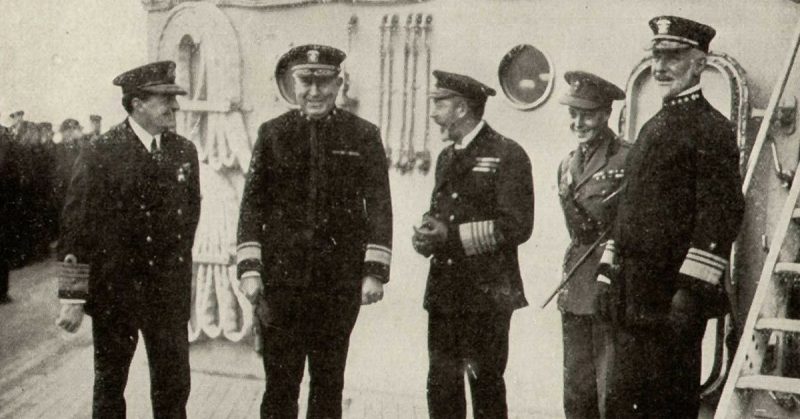Brothers Edward, Prince of Wales and Prince Albert, both of whom became king of England, each served in the military during World War I.
Edward served in the trenches on the Western Front. Albert, still in his teens when the war started, served in the Royal Navy. Letters written by them to their family during the war are going on display, giving insight into their different roles in the war.
For the first decade of the 1900s, they lived a pampered existence. That ended when war was declared on Germany in 1914.
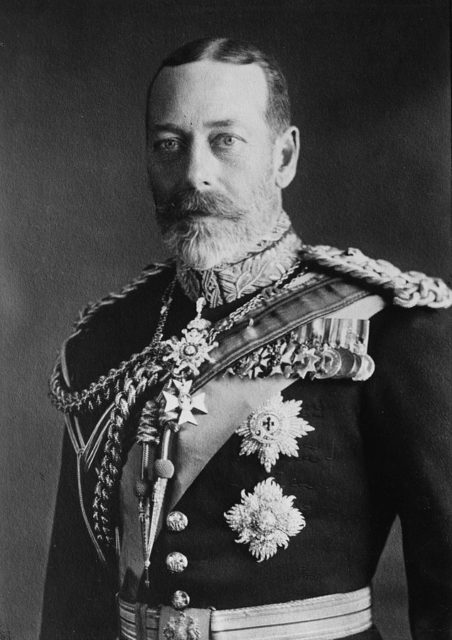
Edward, 20, was eager to see action. He joined the Grenadier Guards and begged to be allowed to fight. War Secretary Lord Kitchener decided it was too risky for the heir to the throne. Edward could have easily stayed out of harm’s way at home, but instead, he worked out a compromise that allowed him to make frequent trips to the front lines.
On the other hand, Albert wasn’t expected to become king so he had fewer obstacles. He was a Royal Navy cadet and joined the training ship HMS Cumberland in 1913. After the war was declared, he became a midshipman on the HMS Collingwood.
The opinion in Britain in 1914 was that the Royal Navy could not be challenged by Germany. This explains their willingness to allow the second in line for the throne to serve in the navy.
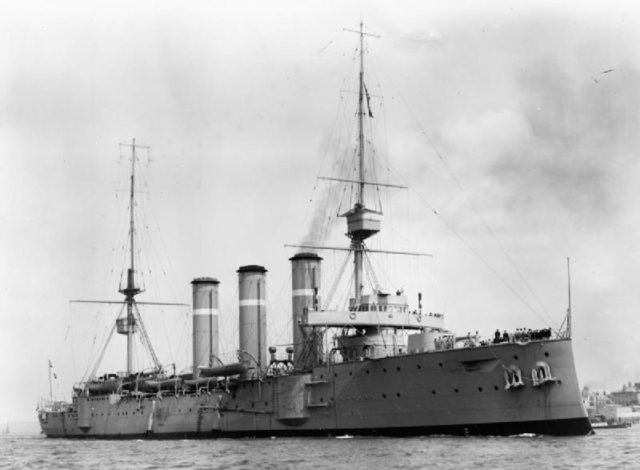
But the Germans began an effort to build battleships and, by 1916, were ready to take on the British navy, which was blockading the North Sea. Over the course of two days at the end of May, the two fleets fought the Battle of Jutland, which turned out to be the biggest naval engagement of World War I.
The British lost 14 ships and over 6,000 men. Germany lost 11 ships and 2,500 sailors. In spite of suffering fewer losses in the battle, the Germans were never again in a position to challenge the British navy for the rest of the war.
Albert, who became George VI in 1936 when his brother abdicated to marry Wallis Simpson, was in the thick of the battle. The prince was in charge of a gun turret on the Collingwood, and in his letters, he described having narrowly avoided death when his ship was targeted by a German U-boat. Watching ships get destroyed around him was a life-changing moment for the young man.
He wrote on June 11, 1916: “I am quite all right and feel very different now that I have seen a German ship filled with Germans and have seen it fired on with our guns. It was a great experience to have gone through and one not easily forgotten. How and why we were not hit or damaged beats me. The ship ahead of us was hit but it did not do any damage. We had torpedoes fired at us.”
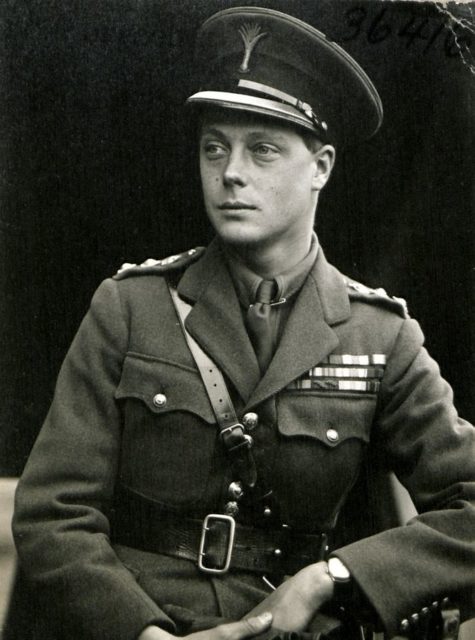
It was later noted that the closer of the pair of torpedoes came within 10 yards of changing the course of British history.
Albert concluded in his letter home: “It seems to have resulted in a victory for us. The Germans must have suffered very severely as our ships were hitting very nearly all the time.”
From next month, the princes’ letters will be displayed at the National Museum of the Royal Navy in Portsmouth to mark the 100th anniversary of the Battle of Jutland.
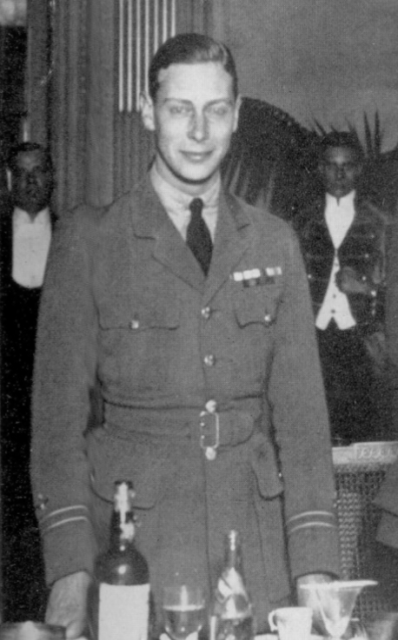
Nick Hewitt, a historian at the museum, says: “Prince Albert received no special treatment.
“He shared the same risks as all the other sailors and just happened to be lucky, as one in 10 of all the British seamen involved in the battle were killed.”
Meanwhile in France, Edward was on one of his frequent morale-boosting visits to the trenches. Although not permitted to be directly involved in fighting, the heir to the throne was keen to throw off the shackles and is said to have impressed the Tommies with his willingness to muck in.
The future Edward VIII wrote about the conditions in France in June of 1916. He noted how life away from the front in Ypres was “pretty dull and monotonous,” very different from the trenches where “the troops in the line get a fearful bad time of it.” He received news of the Battle of Jutland and his brother’s close call. He wrote, “It does make one feel proud of the service when one hears how those ships met their end, with their guns firing as they went down.”
Edward wrote about his brother’s health: “I’m so glad old Bertie was in the fight as it will buck him up a lot.” Actually, Albert would be fighting off illness for most of his life. He saw no further action in the war.
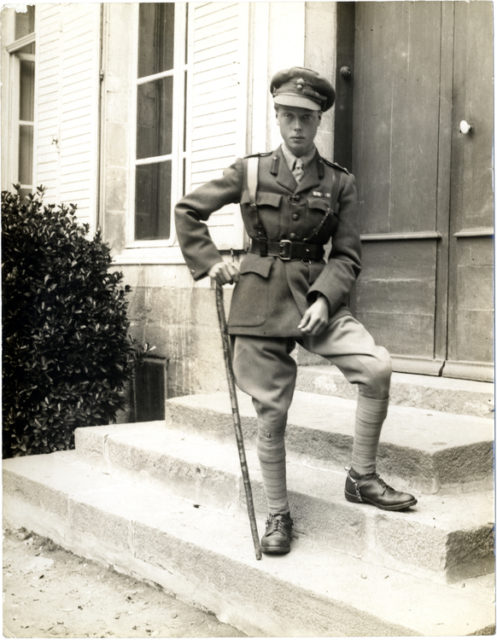
The letters from each of the princes are in the Imperial War Museums Collection. They were sent to the personal assistant of their father, King George V.
In a development that has always been considered controversial, Edward was awarded the Military Cross. The honor is intended for “acts of exemplary gallantry during active operations against the enemy.” Edward was embarrassed by the award. In later life, he refused to wear it. In 1916, he wrote: “I can’t say I feel I have earned the MC at all but that’s nothing to do with me!”
Historian Ian Kikuchi, a historian at the Imperial War Museums, says, “Edward did his best to get to the front line and that made him a popular figure. He was, perhaps, a little jealous of his younger brother, who saw direct action.
“The letters from the two princes are interesting because they give two perspectives of the war,” he said. Edward was always considered the more impressive, dashing and charismatic of the two brothers. Albert was a shy man who spoke with a stammer and was a reluctant king when thrust into the position two decades later.
